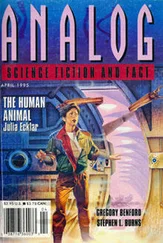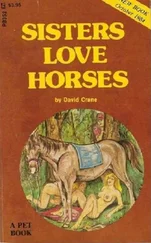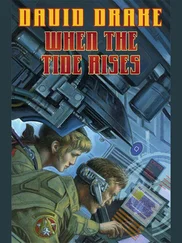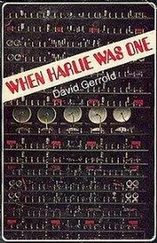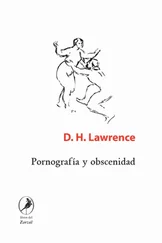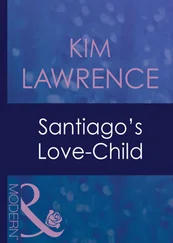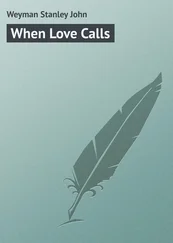David Lawrence - Women in Love
Здесь есть возможность читать онлайн «David Lawrence - Women in Love» весь текст электронной книги совершенно бесплатно (целиком полную версию без сокращений). В некоторых случаях можно слушать аудио, скачать через торрент в формате fb2 и присутствует краткое содержание. Год выпуска: 2003, Жанр: Классическая проза, Современные любовные романы, на английском языке. Описание произведения, (предисловие) а так же отзывы посетителей доступны на портале библиотеки ЛибКат.
- Название:Women in Love
- Автор:
- Жанр:
- Год:2003
- ISBN:нет данных
- Рейтинг книги:3 / 5. Голосов: 1
-
Избранное:Добавить в избранное
- Отзывы:
-
Ваша оценка:
- 60
- 1
- 2
- 3
- 4
- 5
Women in Love: краткое содержание, описание и аннотация
Предлагаем к чтению аннотацию, описание, краткое содержание или предисловие (зависит от того, что написал сам автор книги «Women in Love»). Если вы не нашли необходимую информацию о книге — напишите в комментариях, мы постараемся отыскать её.
Women in Love — читать онлайн бесплатно полную книгу (весь текст) целиком
Ниже представлен текст книги, разбитый по страницам. Система сохранения места последней прочитанной страницы, позволяет с удобством читать онлайн бесплатно книгу «Women in Love», без необходимости каждый раз заново искать на чём Вы остановились. Поставьте закладку, и сможете в любой момент перейти на страницу, на которой закончили чтение.
Интервал:
Закладка:
'I'm sure I've—HIC! OH DEAR!—got one.'
Gerald and Gudrun were watching absorbedly.
'Oh yes, how perfectly—HIC!—splendid! Don't make me laugh, Pussum, it gives me the hiccup. Hic!—' They all giggled.
'What did he say in that one?' the Pussum asked, leaning forward, her dark, soft hair falling and swinging against her face. There was something curiously indecent, obscene, about her small, longish, dark skull, particularly when the ears showed.
'Wait—oh do wait! NO-O, I won't give it to you, I'll read it aloud. I'll read you the choice bits,—hic! Oh dear! Do you think if I drink water it would take off this hiccup? HIC! Oh, I feel perfectly helpless.'
'Isn't that the letter about uniting the dark and the light—and the Flux of Corruption?' asked Maxim, in his precise, quick voice.
'I believe so,' said the Pussum.
'Oh is it? I'd forgotten—HIC!—it was that one,' Halliday said, opening the letter. 'HIC! Oh yes. How perfectly splendid! This is one of the best. "There is a phase in every race—"' he read in the sing-song, slow, distinct voice of a clergyman reading the Scriptures, '"When the desire for destruction overcomes every other desire. In the individual, this desire is ultimately a desire for destruction in the self"—HIC!—' he paused and looked up.
'I hope he's going ahead with the destruction of himself,' said the quick voice of the Russian. Halliday giggled, and lolled his head back, vaguely.
'There's not much to destroy in him,' said the Pussum. 'He's so thin already, there's only a fag-end to start on.'
'Oh, isn't it beautiful! I love reading it! I believe it has cured my hiccup!' squealed Halliday. 'Do let me go on. "It is a desire for the reduction process in oneself, a reducing back to the origin, a return along the Flux of Corruption, to the original rudimentary conditions of being—!" Oh, but I DO think it is wonderful. It almost supersedes the Bible-'
'Yes—Flux of Corruption,' said the Russian, 'I remember that phrase.'
'Oh, he was always talking about Corruption,' said the Pussum. 'He must be corrupt himself, to have it so much on his mind.'
'Exactly!' said the Russian.
'Do let me go on! Oh, this is a perfectly wonderful piece! But do listen to this. "And in the great retrogression, the reducing back of the created body of life, we get knowledge, and beyond knowledge, the phosphorescent ecstasy of acute sensation." Oh, I do think these phrases are too absurdly wonderful. Oh but don't you think they ARE—they're nearly as good as Jesus. "And if, Julius, you want this ecstasy of reduction with the Pussum, you must go on till it is fulfilled. But surely there is in you also, somewhere, the living desire for positive creation, relationships in ultimate faith, when all this process of active corruption, with all its flowers of mud, is transcended, and more or less finished—" I do wonder what the flowers of mud are. Pussum, you are a flower of mud.'
'Thank you—and what are you?'
'Oh, I'm another, surely, according to this letter! We're all flowers of mud—FLEURS—HIC! DU MAL! It's perfectly wonderful, Birkin harrowing Hell—harrowing the Pompadour—HIC!'
'Go on—go on,' said Maxim. 'What comes next? It's really very interesting.'
'I think it's awful cheek to write like that,' said the Pussum.
'Yes—yes, so do I,' said the Russian. 'He is a megalomaniac, of course, it is a form of religious mania. He thinks he is the Saviour of man—go on reading.'
'Surely,' Halliday intoned, '"surely goodness and mercy hath followed me all the days of my life—"' he broke off and giggled. Then he began again, intoning like a clergyman. '"Surely there will come an end in us to this desire—for the constant going apart,—this passion for putting asunder—everything—ourselves, reducing ourselves part from part—reacting in intimacy only for destruction,—using sex as a great reducing agent, reducing the two great elements of male and female from their highly complex unity—reducing the old ideas, going back to the savages for our sensations,—always seeking to LOSE ourselves in some ultimate black sensation, mindless and infinite—burning only with destructive fires, raging on with the hope of being burnt out utterly—"'
'I want to go,' said Gudrun to Gerald, as she signalled the waiter. Her eyes were flashing, her cheeks were flushed. The strange effect of Birkin's letter read aloud in a perfect clerical sing-song, clear and resonant, phrase by phrase, made the blood mount into her head as if she were mad.
She rose, whilst Gerald was paying the bill, and walked over to Halliday's table. They all glanced up at her.
'Excuse me,' she said. 'Is that a genuine letter you are reading?'
'Oh yes,' said Halliday. 'Quite genuine.'
'May I see?'
Smiling foolishly he handed it to her, as if hypnotised.
'Thank you,' she said.
And she turned and walked out of the Cafe with the letter, all down the brilliant room, between the tables, in her measured fashion. It was some moments before anybody realised what was happening.
From Halliday's table came half articulate cries, then somebody booed, then all the far end of the place began booing after Gudrun's retreating form. She was fashionably dressed in blackish-green and silver, her hat was brilliant green, like the sheen on an insect, but the brim was soft dark green, a falling edge with fine silver, her coat was dark green, lustrous, with a high collar of grey fur, and great fur cuffs, the edge of her dress showed silver and black velvet, her stockings and shoes were silver grey. She moved with slow, fashionable indifference to the door. The porter opened obsequiously for her, and, at her nod, hurried to the edge of the pavement and whistled for a taxi. The two lights of a vehicle almost immediately curved round towards her, like two eyes.
Gerald had followed in wonder, amid all the booing, not having caught her misdeed. He heard the Pussum's voice saying:
'Go and get it back from her. I never heard of such a thing! Go and get it back from her. Tell Gerald Crich—there he goes—go and make him give it up.'
Gudrun stood at the door of the taxi, which the man held open for her.
'To the hotel?' she asked, as Gerald came out, hurriedly.
'Where you like,' he answered.
'Right!' she said. Then to the driver, 'Wagstaff's—Barton Street.'
The driver bowed his head, and put down the flag.
Gudrun entered the taxi, with the deliberate cold movement of a woman who is well-dressed and contemptuous in her soul. Yet she was frozen with overwrought feelings. Gerald followed her.
'You've forgotten the man,' she said cooly, with a slight nod of her hat. Gerald gave the porter a shilling. The man saluted. They were in motion.
'What was all the row about?' asked Gerald, in wondering excitement.
'I walked away with Birkin's letter,' she said, and he saw the crushed paper in her hand.
His eyes glittered with satisfaction.
'Ah!' he said. 'Splendid! A set of jackasses!'
'I could have KILLED them!' she cried in passion. 'DOGS!—they are dogs! Why is Rupert such a FOOL as to write such letters to them? Why does he give himself away to such canaille? It's a thing that CANNOT BE BORNE.'
Gerald wondered over her strange passion.
And she could not rest any longer in London. They must go by the morning train from Charing Cross. As they drew over the bridge, in the train, having glimpses of the river between the great iron girders, she cried:
'I feel I could NEVER see this foul town again—I couldn't BEAR to come back to it.'
CHAPTER XXIX.
CONTINENTAL
Ursula went on in an unreal suspense, the last weeks before going away. She was not herself,—she was not anything. She was something that is going to be—soon—soon—very soon. But as yet, she was only imminent.
Читать дальшеИнтервал:
Закладка:
Похожие книги на «Women in Love»
Представляем Вашему вниманию похожие книги на «Women in Love» списком для выбора. Мы отобрали схожую по названию и смыслу литературу в надежде предоставить читателям больше вариантов отыскать новые, интересные, ещё непрочитанные произведения.
Обсуждение, отзывы о книге «Women in Love» и просто собственные мнения читателей. Оставьте ваши комментарии, напишите, что Вы думаете о произведении, его смысле или главных героях. Укажите что конкретно понравилось, а что нет, и почему Вы так считаете.

